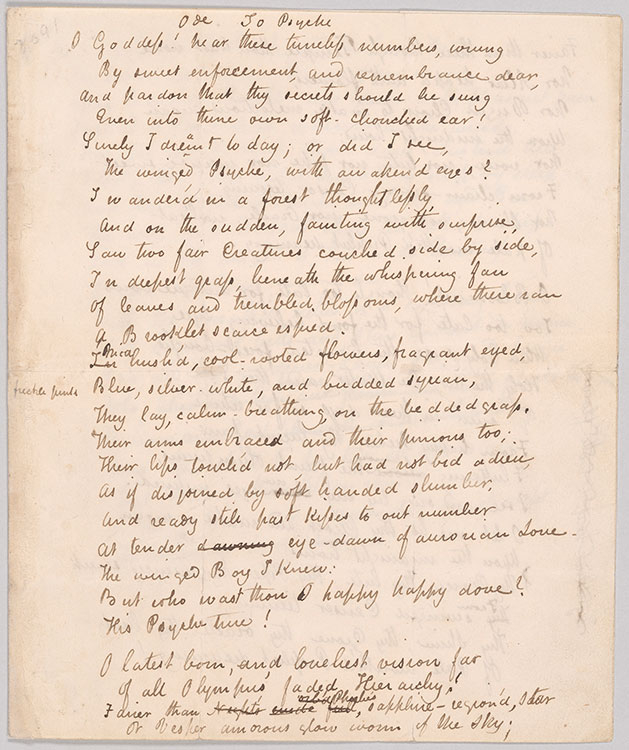Ode to Psyche
Excerpt:
O Goddess! hear these tuneless numbers, wrung
By sweet enforcement and remembrance dear,
And pardon that thy secrets should be sung
Even into thine own soft-conched ear:
Surely I dreamt to-day, or did I see
The winged Psyche with awaken'd eyes?
I wander'd in a forest thoughtlessly,
And, on the sudden, fainting with surprise,
Saw two fair creatures, couched side by side
In deepest grass, beneath the whisp'ring roof
Of leaves and trembled blossoms, where there ran
A brooklet, scarce espied:
The four-stanza "Ode to Psyche" is one of Keats' odes' key organizational elements. Considering the variances in rhyme patterns, metrical patterns, and the number of lines, this provides for an intriguing literary study.
The goddess Psyche is mentioned in a poem by Keats, who calls her the most attractive Olympian goddess. He continues by saying that, unlike her Olympian colleagues, she lacks the trappings of adoration. She has no temples, altars, or choir to her name.
John Keats thinks that her youth and age are to blame for this. Keats claims he will become Psyche's priest through this ode and build a temple for her in his thoughts.
Due to the way in which it captures his ideal of love, which is only possible in one's mind, "Ode to Psyche" is a notable literary work.
Type: Ode
Published: 1819











